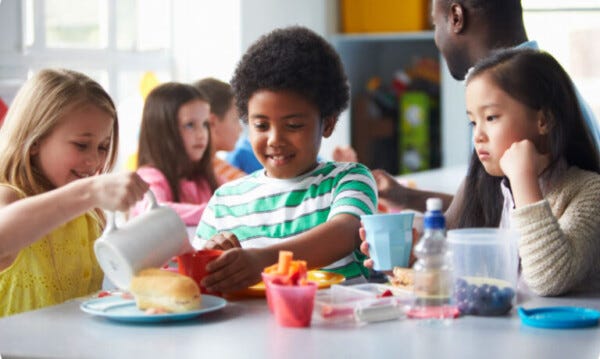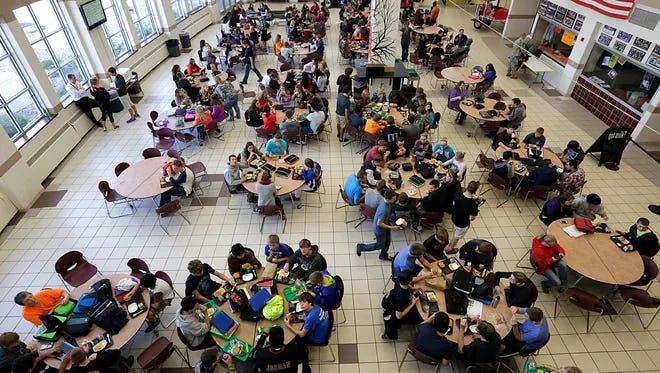Real change is not top-down but, instead, is most effectively shaped by bottom-up, grassroots communities. Yet, good policy is needed to support local communities; compassionate policy that connects people leads to good politics. While my essays often focus on vibrant communities working toward a brighter future, today, I want to offer appreciation for the kind of policy we need more of.
I am a fan of the podcast "The Ezra Klein Show." On August 2nd, he interviewed Tim Walz, the well-liked governor of Minnesota, before the announcement of Harris's vice presidential choice. Walz was relatively unknown to Americans outside of Minnesota, but his recent presence on news and talk show circuits propelled him into the national spotlight. His message resonated with people. The gist is that people in the heartland, and all over, do not like or want this national divisiveness, and he called out politicians who foment it as “just weird.”
While Walz and Klein's conversation covered a lot of ground, one aspect stayed with me: the discussion of a meal program in Minnesota public schools. This kind of policy that bridges differences rather than exacerbates them is far too uncommon, so I want to use today's essay to share it.
In March 2023, Walz signed a bill to provide free school meals – breakfast and lunch – for Minnesota students regardless of income. Minnesota was one of four states to have a program like this. (Now, eight states have such programs, and more are in the planning stages.) Walz had to defend why the program was for all families, not only those below a particular income. A criticism was, “Why are you paying for lunch for kids of rich parents?”
Walz argued that the lunch program's universality made it simpler. But his reasons went deeper. As a teacher, Walz supervised children for 20 years in a public school lunchroom, and he understood the importance of belonging. He shared his reasons for pushing for this bill with Ezra Klein. (A few phrases in his quote below are bolded for emphasis.)
"Those of us who [supervised the lunchroom] had our own accounts [to pay for lunch] because kids would run out of money. That lunchroom, then, became very clear 'haves' and 'have nots.' And, in fact, some schools may still do it [this way]. You had a different color lunch ticket if you were on free or reduced lunch.
Free and reduced lunch [program] also meant you had to complete paperwork. And our point was that there would not be a division in that lunchroom. It was going to be 'Eat. Don't worry about it. Come in; you don't have to have a ticket.' What it did was start to break down barriers.
We saw very basic things. First, attendance went up as we saw a huge usage of this [program]. And we saw [problematic] classroom behaviors go down. No surprise, the science shows us if the kids are hungry, there will be more problems.
…
You know, the people who gave me the most feedback on this [program] are families, especially mothers, because the unequal distribution of domestic labor still falls heavily upon women. And these [those who commented] were women who said, 'Look, we didn't qualify before, we do now. It's an absolute tax cut for us. But it is also an absolute lifesaver for me because I don't have to get up in the morning and either make breakfast or send one to school. So, it's a double benefit: I have less work, and my kids eat.' It was middle-class folks who were most jazzed about this.”
Ezra Klein commented to Walz that he, too, felt jazzed about this idea as a father. When his kids get lunch provided for them, he gets to spend precious time with his kids in the morning that he otherwise wouldn't have.
Not only does a free meal program at school reduce a family's food insecurity by lowering grocery bills, but it also ensures that no child is hungry during the school day, with the emotional and behavioral benefits it provides. And, as Ezra noted, these programs enable parents to have quality time with their children in the morning.
Yet perhaps the biggest advantage of this kind of program is psychological, in that the cafeteria becomes a space where children don't have to be barraged with reminders of economic disparities. These reminders are everywhere, including in schools, and children receive them at an early age. Let there be one place where children can connect without them. Eating together is a great way to build social bonds and break down barriers.
Thanks to Minnesota's school nutrition program, children who most need meals receive them without shame or reminders that they are receiving assistance. Healthy meals for children in a wealthy country are a moral obligation and should not be offered as a handout, and people with significant financial means can pay more in other ways. Let children be children, and the cafeteria a place of community building.






